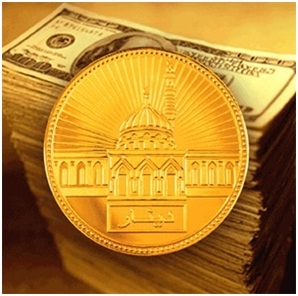
Southeast Asia an engine for growth for Sharia banking
Guess which country could be the key player for Islamic banking?
According to East & Partners, as banks look for growth worldwide, it is natural that they should be looking to the world of Islamic finance and Sharia-based banking products.
Here's more from East & Partners:
Worldwide Sharia banking
No less an institution than Goldman Sachs is reportedly planning to issue Sukuk bonds, and improbable as it sounds, Ireland has begun talking up its ability to be an Islamic banking centre.
Currently there is US$1.1 trillion in Sharia-compliant assets worldwide, up 33 percent on 2010 according to Ernst & Young, and that is expected to grow by as much as 15 to 20 percent this year. There was a record $43 billion in sukuk issuance in the first quarter of this year, doubling the same period in 2011.
Islamic banking closer to home
Closer to Asia, the National Australia Bank could become the first of the Australian banks to issue Islamic bonds, with April reports that the bank is pondering a A$500 million issue.
In Australia, the 2010 Johnson Report looked at developing Australia as an international funds management centre, and identified Sharia-compliant funds as a potential growth area for the Australian funds industry.
The real engine for the growth of Islamic finance, however, is undoubtedly South-east Asia (although South Asia is also growing).
Malaysia has established early runs as a regional Islamic banking hub, and the country’s central bank recently announced an Islamic overnight funding facility to encourage commercial banks from the Gulf states to trade in Malaysia’s Sharia-compliant money market.
It is not just Sukuk bonds which are the focus. Islamic banking products from funds to wealth management and retail mortgages are growing as the economies of Malaysia and Indonesia gain momentum. Already, the Sharia sector represents a quarter of Malaysia’s banking sector.
Indonesia as a key player?
Only half of Indonesia’s population currently have access to banking products, and as the country becomes more affluent, it is likely that many of these newly banked Indonesian’s will chose Islamic products, which currently comprise only 9 percent of Indonesian banking assets. From this low base, the market is expected to grow around 40 percent this year.
The growing trade in Sharia-based stocks in Indonesia could offset what is expected to be a 30 percent fall in turnover of traditional securities on the Jakarta stock market this year. There are 174 Sharia-based shares, and one bank – Bank Negara Indonesia – has recently launched online trading in these stocks.
Impact of Sharia banking on the finance industry
The shift will have a significant impact on the banking industry in South-east Asia. Some established banks, such as Standard Chartered, HSBC and the Singaporean and Malaysian majors, are already well placed to take advantage of this. Switzerland’s Bank Sarasin is pondering entering the high net worth Malaysian market with Islamic product.
Islamic banking could also mean opportunity for local institutions, particularly in Indonesia, which are close to their communities and are well placed to tap into the growth.
South-east Asia has developed into a highly attractive banking market and is very much on the radar screens of some large international players, from countries such as Australia. Could Sharia banking be the key to unlocking this new market and its potential wealth?






















 Advertise
Advertise






